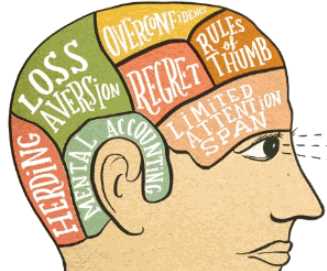The Role of Emotions in Financial Behavior
Emotions play a significant role in shaping our financial behavior. While many people believe that financial decisions are based solely on rational thinking and logical analysis, research in behavioral finance has shown that emotions can have a profound impact on our financial choices.
1. The Influence of Fear and Greed
Fear and greed are two powerful emotions that can heavily influence financial behavior. When fear dominates, individuals may be more inclined to make conservative investment choices or even avoid investing altogether. On the other hand, when greed takes over, individuals may be more willing to take on greater risks in the hopes of achieving higher returns.
2. The Impact of Overconfidence

Overconfidence is another emotion that can significantly impact financial behavior. Research has shown that individuals tend to be overly optimistic about their abilities and the outcomes of their financial decisions. This overconfidence can lead to excessive risk-taking and poor investment choices.
By being aware of the tendency towards overconfidence, individuals can take steps to counteract it. Seeking advice from financial professionals, conducting thorough research, and diversifying investments are strategies that can help mitigate the negative effects of overconfidence.
3. The Role of Loss Aversion
Loss aversion is a psychological bias that causes individuals to feel the pain of losses more strongly than the pleasure of gains. This bias can lead to irrational decision-making, such as holding onto losing investments for too long or selling winning investments too quickly.

Emily Bibb simplifies finance through bestselling books and articles, bridging complex concepts for everyday understanding. Engaging audiences via social media, she shares insights for financial success. Active in seminars and philanthropy, Bibb aims to create a more financially informed society, driven by her passion for empowering others.
